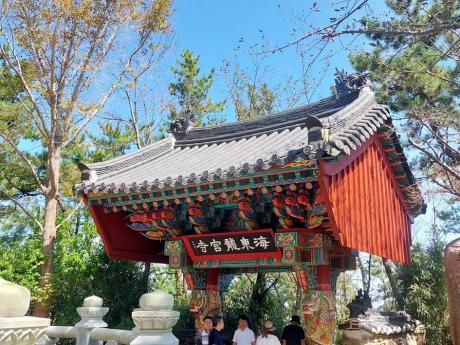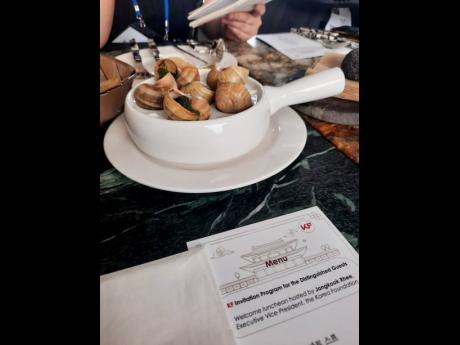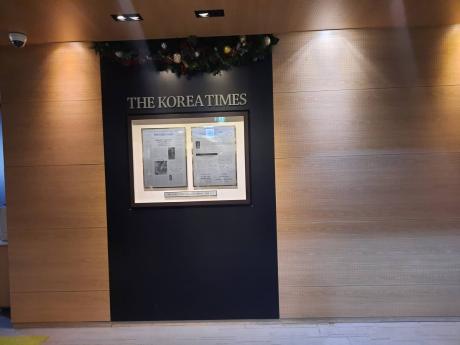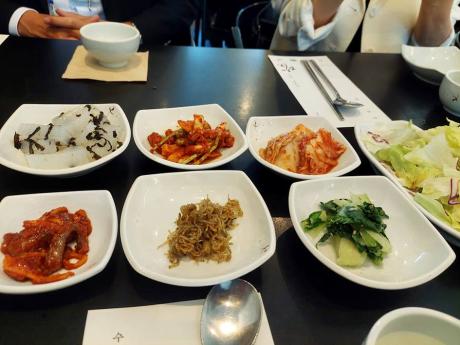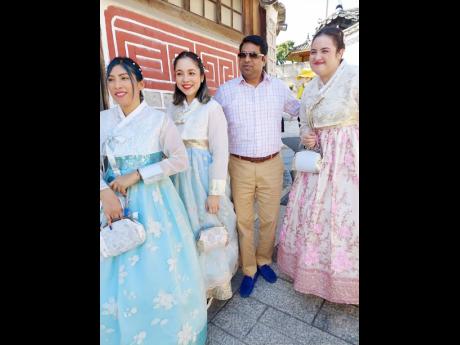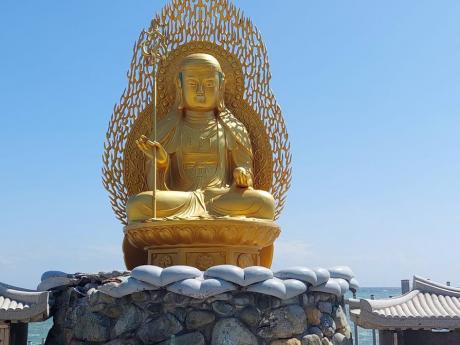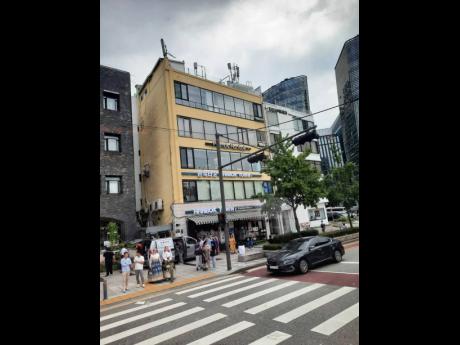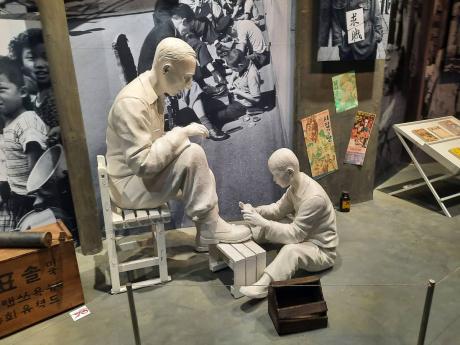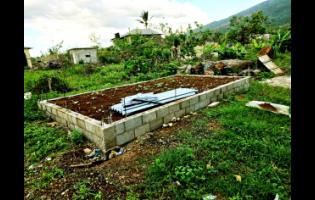Spectacular South Korea - Jamaican journalist treks around Asian giant’s major cities
South Korea, officially known as the Republic of Korea, is undoubtedly a country rich in culture, natural beauty, and history, and consists of some of the warmest and kindest persons on Earth.
When I was invited by The Korea Foundation to visit the country as a distinguished media guest, I was elated, but also nervous about what my experience would be like. However, with just a step inside the Korean Air aircraft on September 2, my jitters were calmed. The flight attendants spoke very little English but they somehow understood when I spoke. Their smiles were calming and before long, I had drifted off to sleep for a portion of the almost 16-hour flight from New York to the country's capital Seoul. Going through the immigration process was a breeze, and I was greeted by Kim, a representative from The Korea Foundation. The one hour journey to The Ambassador Seoul hotel was magical. The lights were captivating and I was amazed by the skyscrapers, the lights competing with the stars above.
Myself and the eight other media personalities from different countries were given a tour of The Korea Times, the nation's top English speaking media outlet. President of the publication, Oh Young-Jin, spoke on a variety of topics including him embracing the usage of Chat GPT and other forms of artificial intelligence (AI). He, however, stated that while he is all for the new, pre-trained app, it isn't the same for some members of his staff.
"Personally, I am all for Chat GPT and AI but it doesn't mean that my company is all for it as well. I believe that reporters and media outlets are very conservative. Our job is to check the facts and we sometimes see things in a negative way but we need to be more accommodating to technologies," he said.
The Korea Times' newsroom is a tiny space compared to our local editorial offices, but the content produced is of the highest standard according to Young-Jin. Visits were made to other media outlets namely newspaper The JoongAng, JBTC and The Community Media Foundation, who gave a briefing on the role of the regional media in the city of Busan and The World Expo 2030 Busan.
Food was required after all of that knowledge, and a luncheon hosted by Jogkook Rhee, executive vice-president of The Korea Foundation was next on the list of activities. I was ready to dive in the French menu that was provided, but sitting at the top of the menu was lescargot, a snail dish. Of course we all got a basin with about six of the delicacies, but being a product of the Caribbean, snails are no way close to being on my dinner table. For a few minutes I sat staring at the mollusks tucked inside their shells, and told myself that only over my dead body would I consume a slippery snail. This was not a familiar dish for the Koreans either, and they too stared with uncertainty at the well-seasoned snails. But soon after, everyone, me included, was pulling out the flesh out of the shell. Dipping it into a sauce, I decided to partake in the snail feast and I must say, the taste was almost similar to octopus meat. The remainder of stay served up tasty cuisine including Korean kimchi (spicy cabbage dish), bulgogi (a barbecue dish), Korean stew and spicy cold noodle. There are no beer bellies in South Korea, as the residents consume lots of vegetables, beans and white meat. Water is a must have with meals, and dinner plates are turned down by 7 p.m.
Last Thursday, when it was time to visit the Haedong Younggung Temple in Busan, I was super intrigued. Located along a beautiful shoreline, this temple stands out as most of them are found in the mountains. My interest piqued even more when the Korea Foundation tour guide Yoon Hyemin told an old wives' tale about rubbing the belly of a particular statue if the desire is to have a boy child. I joked around that I was a mother of three daughters and a son would be welcomed, but this was no laughing matter for Hyemin, who barred me from getting close to the statue stating that she is living proof that the statue may have special powers.
"A lot of women who want boy children go and rub the belly of the statue and I went and rubbed the belly of the statue and I have two boys. You shouldn't rub the belly unless you want boy," she said much to my amusement.
South Korea boasts an impressive economy and the residents will proudly tell you that they were able to achieve this with hard work and a committed government body. The country has achieved remarkable success in recent decades in combining rapid economic growth with significant poverty reduction, with real gross domestic product growing on average by 4.9 per cent annually between 1988 and 2022.






























